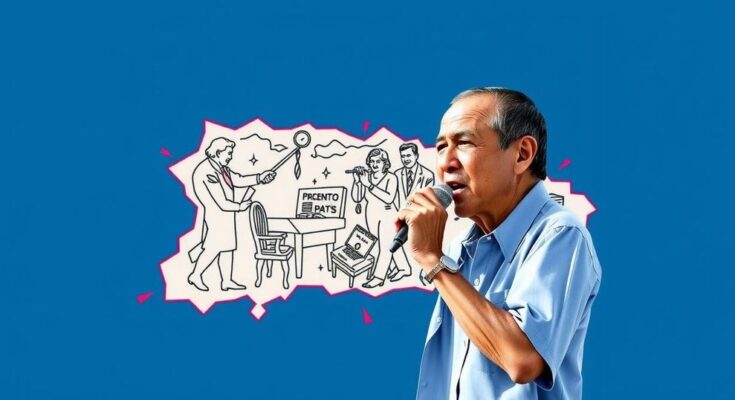Puerto Rico’s upcoming Election Day is marked by significant competition, notably from Juan Dalmau, a third-party candidate leading a historical charge against the traditional political parties in the wake of widespread discontent over corruption and mismanagement. With polls showing him close to frontrunner Jenniffer González, the election is being viewed as a pivotal moment for Puerto Rican politics, influenced by generational shifts and pressing economic concerns that demand immediate attention from candidates.
Puerto Rico is preparing for a historic Election Day, marked by the competitive run of Juan Dalmau, a third-party candidate with the Puerto Rico Independence Party and the Citizen Victory Movement. Dalmau’s campaign is gaining significant momentum, placing him in a close second in the polls against Jenniffer González of the New Progressive Party, who has recently emerged as a formidable candidate after winning her party’s primary. Political dynamics are shifting as voter disillusionment with longstanding parties grows, primarily due to rampant corruption and prolonged power outages on the island. In a recent poll, Dalmau has garnered 29% support while González leads with 31%. This shift signifies a notable change in the political landscape of Puerto Rico, which has historically been dominated by the New Progressive Party and the Popular Democratic Party. Analysts highlight the elections as a potential turning point, citing a dramatic increase in the involvement of younger voters who are increasingly disenchanted with the current administration. Meanwhile, the ongoing issues surrounding power outages, the management of public funds, and the lingering effects of Hurricane Maria continue to plague the electorate. Candidates are pledging reforms, including the cancellation of contracts with energy companies that have consistently failed to address the power crisis, as well as promises to provide affordable housing and improve healthcare. However, there is deep-rooted voter apathy reflected in the diminishing turnouts in recent elections, raising concerns about the overall engagement in the democratic process. The upcoming election will also include a nonbinding referendum on Puerto Rico’s political status, presenting options for statehood, independence, or independence with free association, although there is skepticism regarding the U.S. Congress’s responsiveness to the outcomes. Overall, the stakes are high for Puerto Rican voters, not only in terms of local leadership but also in their ongoing quest for political autonomy and stability.
In the context of Puerto Rican politics, the two primary parties, the New Progressive Party and the Popular Democratic Party, have traditionally dominated the political landscape. However, the establishment of third parties has become increasingly significant due to the public’s discontent with political corruption, financial mismanagement, and ongoing economic struggles. Following the establishment of a federal control board in response to the island’s overwhelming public debt, the local government has faced intense scrutiny and criticism, leading to greater political engagement by citizens seeking change. The emergence of figures like Juan Dalmau represents a larger movement among younger voters who desire a departure from longstanding political trends. Additionally, the nonbinding referendum on Puerto Rico’s political status has been a recurring element of elections, reflecting ongoing debates about self-governance, citizenship, and political identity within the context of American politics.
The impending election in Puerto Rico is poised to be transformative, as a notable third-party candidate challenges the traditional political dichotomy and reflects a broader discontent among voters. With lingering economic challenges and essential governance issues, the choices made on Election Day may significantly impact the future political landscape and the debate surrounding Puerto Rico’s status. Engaged citizens, particularly the youth, are expected to influence the election outcomes, as they become increasingly aware of their political agency amid deep-rooted national issues and hopes for reform.
Original Source: apnews.com




